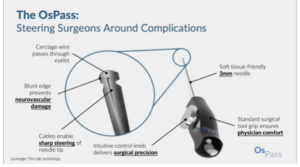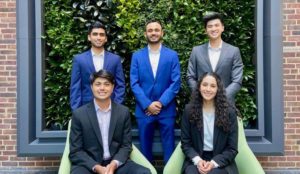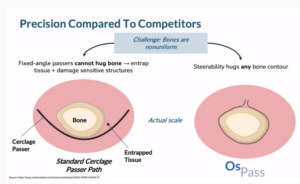by Ebonee Johnson

The Y-Prize, a student startup competition based on technologies developed at Penn Engineering, is hosted by the Wharton School’s Mack Institute for Innovation Management, Penn Wharton Entrepreneurship and the Penn Center for Innovation each year. The team with the best pitch takes home $10,000 in investment funding.
This year’s winning team was Ossum Technologies, composed of Ananya Dewan, Hoang Le, Shiva Teerdhala, all students in the Vagelos Life Sciences and Management Program, Bioengineering major Karan Shah and Savan Patel, a student in the Jerome Fisher Program for Management & Technology.
The team utilized the steerable needle technology developed by Mark Yim, Asa Whitney Professor of Mechanical Engineering and Applied Mechanics, and colleagues. Yim’s device is a flexible needle that can be guided through soft materials with simple handheld controls, enabling users to pinpoint hard-to-reach areas that might otherwise require more complicated tools or robotic assistance.
Read the full story in Penn Engineering Today.


